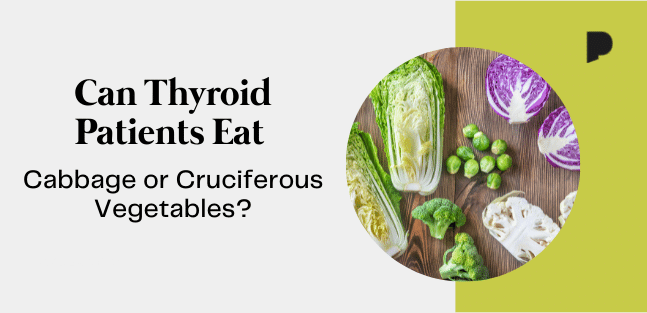If you suffer from hypothyroidism, you might have heard this free advice, “Avoid consumption of cruciferous vegetables such as cabbage, broccoli, cauliflower, mustard greens, kale, and turnip.”
Let’s analyse if there is any truth in this advice.
Why are cruciferous vegetables seen as harmful for thyroid patients?
Cruciferous vegetables are unique because they contact high levels of sulphur-containing compounds called glucosinolates which are considered goitrogens. Goitrogens means that they may interfere in the production of thyroid hormones by disrupting the use of iodine (an important nutrient required for proper functioning of thyroid gland).
Should you completely avoid them?
But don’t despair. You don’t have to avoid cruciferous vegetables. They are a rich source of many vitamins and minerals and should be part of everyone’s diet.
According to a study done at Oregon State University, if one does not have iodine deficiency, then normal consumption of cruciferous vegetables doesn’t seem to increase the risk of hypothyroidism in humans. Hence, it is important to check for your iodine deficiency and ensure that your diet does not lack it.
Also, if your thyroid levels are under control, you can have a higher quantity of cruciferous vegetables. But if it is not, then you may want to limit your intake.
Though focus is on cruciferous vegetables, goitrogens are also found in other foods like soy, strawberries, spinach, peanuts and peaches.
How to consume?
- By cooking the vegetables, the goitrogenic properties are reduced significantly. So, avoid cruciferous vegetables in raw form.
- Everything is good in the right quantity. You can safely have half a cup of these vegetables.
- You should not juice them, as in a glass of juice, you can consume a lot more than your desired quantity.
Ayla Bakar, MD, Northwestern Medicine Regional Medical Group, writes, “Cruciferous vegetables are part of a healthy and balanced diet, and I encourage patients with thyroid disorders to continue eating them in moderation. You would have to consume an excessive and unrealistic amount of these vegetables for them to interfere with iodine and thus hormone production in the thyroid.”
If you follow the above advice, you can and should safely consume cruciferous vegetables. Though, it is always a good idea to discuss the safe quantity for your health condition with your nutritionist/doctor.
